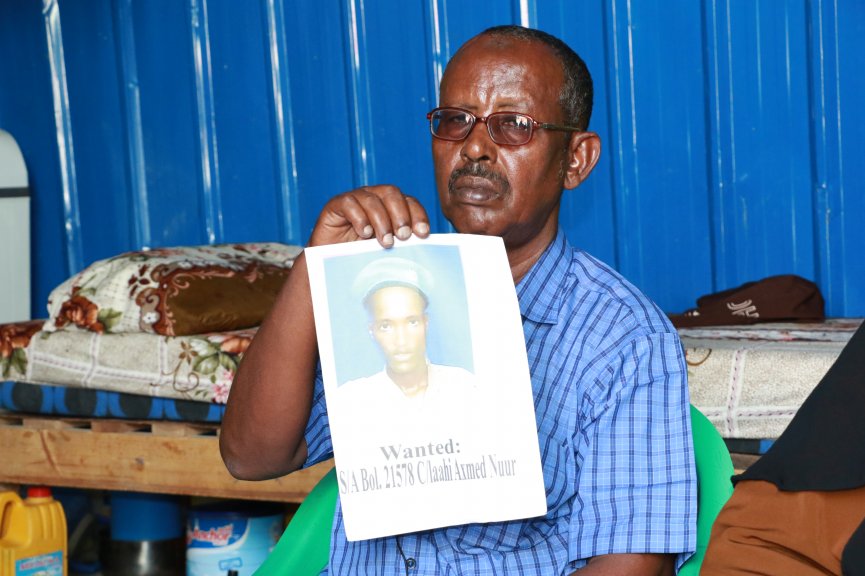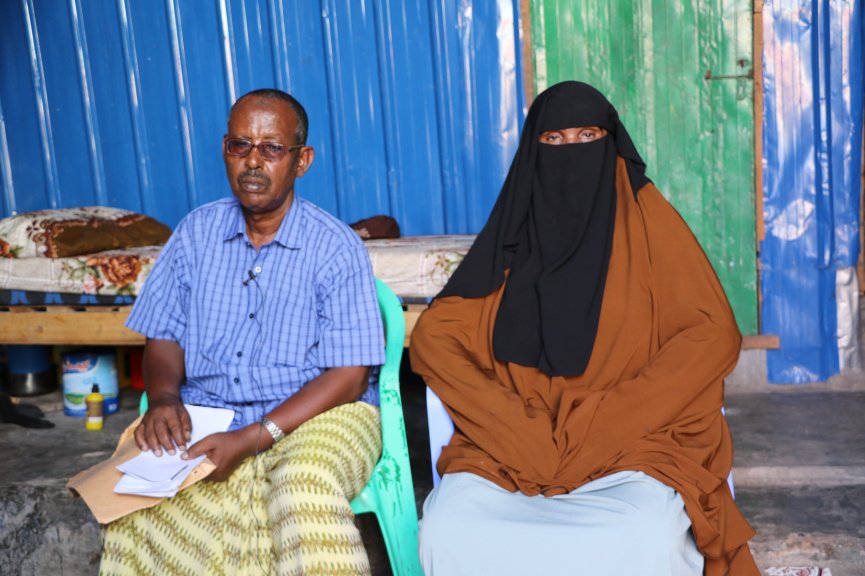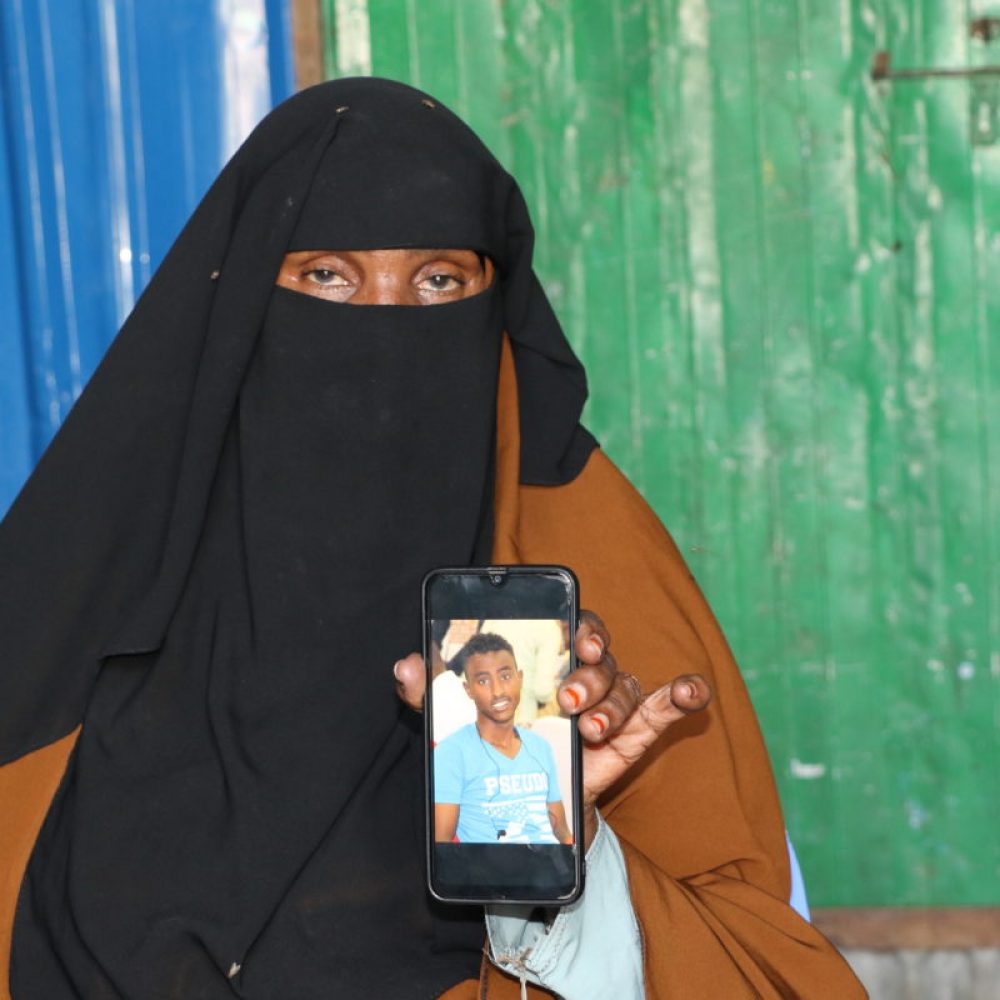This story is part of the 2020 Investigative Grant Programme supported by the Justice for Journalists Foundation. The story was originally published on Horn Observer website and quoted by various media outlets.
MOGADISHU (HORN OBSERVER) : On the afternoon of July 26, 2018 Abdirizak Qasim Iman, a 19-years-old Somali video and photojournalist with the privately owned SBS TV, was returning from a normal assignment at the SIMAD University in the Somali capital, Mogadishu, after covering the graduation event there, according to colleagues and family. On the way to his home a police officer stopped Abdirizak’s bajaj, a three-wheeled auto rickshaw taxi and then shot him on the head resulting Abdirizak’s demise. The body was taken to the police Criminal Investigation Department’s (CID) headquarters. The next morning of July 27, the body was buried without any inquiry opened.
“Officers at the CID photographed the body and wrote it on the Occurrence Book. Then they sent the body to the hospital. The hospital confirmed the death was the result of a gunshot on Abdirizak’s head. We buried the body on the next day,” says Qasim Iman Osoble, 60-year-old father of Abdirizak “They [police] did not open any investigation.”
Somalia remains one of world’s most dangerous places to be a journalist. Journalists not only face endless violations and assassinations –their perpetrators almost always get away with it, ensuring the vicious trend continues. Almost all of the 69 journalists — including two in 2020—murdered in the country since 1992, were on assignment.
Abdirizak has once survived from a car bomb as he covered a hotel attack in Mogadishuin 2017. But the assignment he was executing on the day of his death was not a dangerous one, according to his colleague, Abduwahab Adan Abdirahman.
“Whenever a humanitarian news unfolds, he would jump in. On the day of his killing he was covering a graduation event which was normal assignment,” says Abduwahab “He was a charming guy. He never talked about any threats on his life.”

A day after the burial, the journalist’s family filed a murder lawsuit to the military court and requested an honest investigation citing their lack of confidence on the police. The court wrote to the police to ask the killer officer’s whereabouts. The police responded back and said the killer fled the station and that they could not find him. He remains at large until today.
“Since then there was no any communication from the police and the court. Obviously they did not want to arrest the killer,” Qasim adds.
-MILITARY COURT VERDICT-
In November 1, 2018 a military court tried Police Captain, Abdullahi Nur Ahmed in absentia and found him guilty of murdering Abdirizak, sentencing him to five years in prison and a fine of 100 camels, according to a sentencing document from the court. However the murderer still remains in the police payroll.
The family says the government, through the military court, is attempting to make Abdirizak’s death look unintentional without rigorously probing the murder.
Ranked as one of the worst countries in terms of corruption, according to Transparency International’s Corruption Perception Index (CPI), Somalia suffers from weak public institutions and instability that directly impact basic security governance. For this reason, the journalist’s family is not willing to pursue the court case any more.

“We are not satisfied with the court sentence. It is biased attempt to divert our inquest for justice. They know the killer well. He continues to get payment from the police. They did not investigate him. They did not bother to arrest until today,” the bereaved Qasim says “Once the lower court makes a verdict, the higher court will uphold the same decision. I have no confidence at all.”
“We anticipated for an honest investigation to take place. We hoped for a justice but we did not get it. Our hopes dashed. We are patient with God,” Qasim adds.
Earlier reports said that at the time of the attack, the journalist was trying to pass a security checkpoint near Mogadishu’s Peace Garden, a public park, but his colleague Abduwahab clarified that Abdirizak was holding his camera- enough to reveal his identity as a journalist at the time of the shooting.
“He was still holding his camera but the police officer shot him. It is widely known that police regard journalists and their cameras as enemies. There was no any justification to shoot Abdirizak. When we reached the site we got the camera, which had contained footage he recorded from the university,” Abduwahab who now works at a local radio in Mogadishu said.
Inside in her narrow house made of corrugated iron sheet walls in Mogadishu’s Hamar Jajab neighborhood, Abdirizak’s mother, Sahra Ismail Ali, 53, holds documents showing his picture and a death certificate from the local hospital. It certifies that “Abdirizak was shot twice on the head”.
“Until today I am mourning for [my son’s death]. My heart is in agony. But it is more painful that we have not get justice served for Abdirizak,” Sahra says as she stumbles over her words. That is not her only fear. She is also scared for other journalists including her son’s colleagues who are still willing to seek the truth and report for the public interest in a deadly city for journalists.
“Journalists are important for this country. They should be protected and their rights preserved well. If there are no journalists, then we would not have the information we need to be well informed about what is happening in our surroundings,” she emphasizes.
The local journalist rights groups blame the Somali government for its insouciant stance towards the threats and violence Somali journalists face on a daily basis. Without addressing the issue of impunity towards journalists’ murders, the rights groups say, the problem will persist. So far this year two journalists have been killed. None of the murders were properly investigated. “They kill you and you never know them. Impunity is prevalence in Somalia. Not even that unknown criminals are targeting journalists but also there are known ones,” Abduwahab says.
As this Sunday marks the second anniversary of the young cameraman Abdirizak’s death, his family continues to seek justice. Just last week, Qasim, the father, wrote a letter to the Attorney General’s office requesting the killer be arrested. He is yet to get a response from the Attorney General.
“We expect justice to prevail. The killer is in Galmudug police force. He must be arrested if there is any justice at all,” Qasim concludes.

